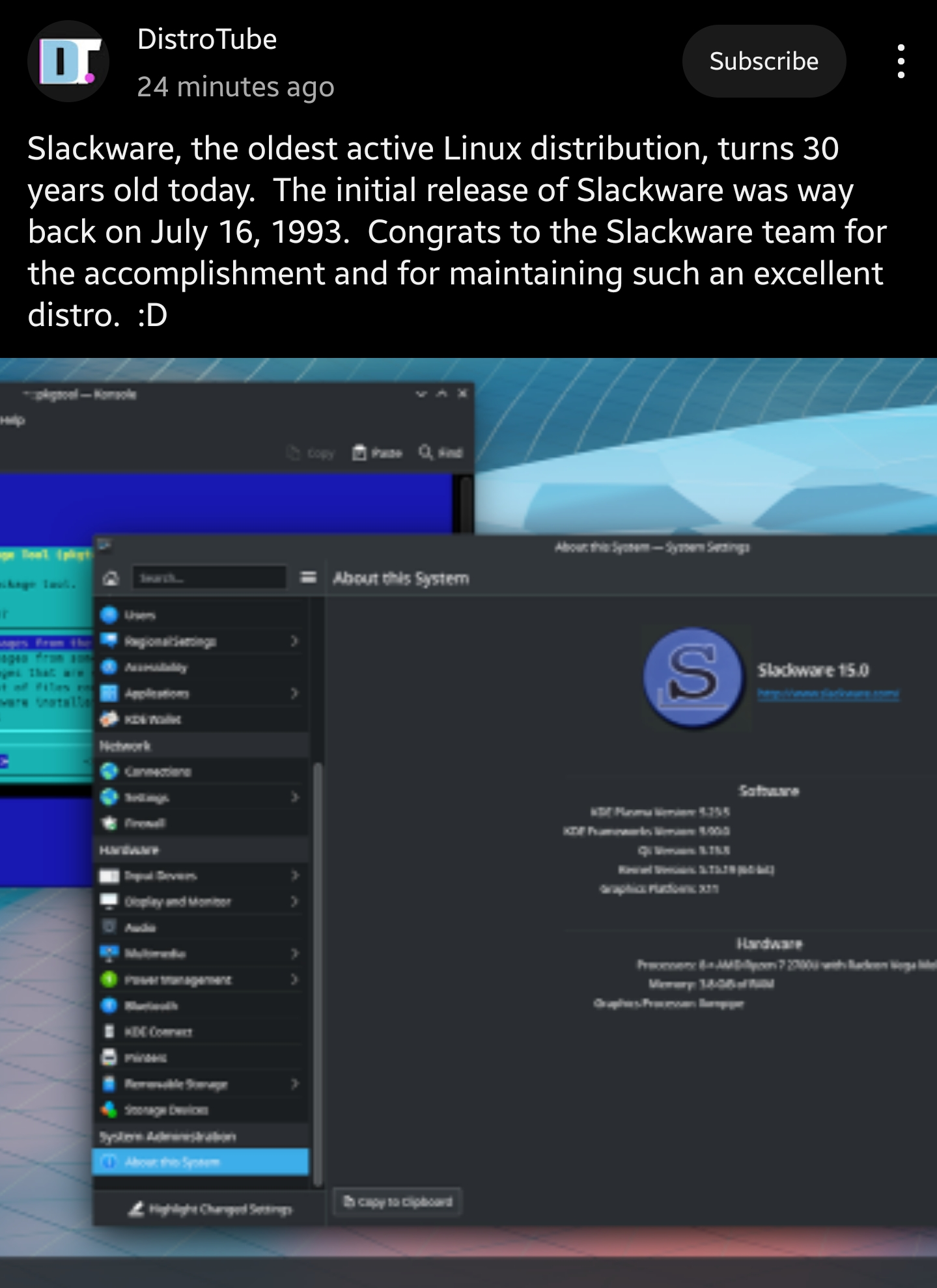this post was submitted on 16 Jul 2023
898 points (98.7% liked)
Linux
48229 readers
845 users here now
From Wikipedia, the free encyclopedia
Linux is a family of open source Unix-like operating systems based on the Linux kernel, an operating system kernel first released on September 17, 1991 by Linus Torvalds. Linux is typically packaged in a Linux distribution (or distro for short).
Distributions include the Linux kernel and supporting system software and libraries, many of which are provided by the GNU Project. Many Linux distributions use the word "Linux" in their name, but the Free Software Foundation uses the name GNU/Linux to emphasize the importance of GNU software, causing some controversy.
Rules
- Posts must be relevant to operating systems running the Linux kernel. GNU/Linux or otherwise.
- No misinformation
- No NSFW content
- No hate speech, bigotry, etc
Related Communities
Community icon by Alpár-Etele Méder, licensed under CC BY 3.0
founded 5 years ago
MODERATORS
you are viewing a single comment's thread
view the rest of the comments
view the rest of the comments

I started with Linux using Slackware in the late 90s. I had to give up on it - first on the desktop around 2007, then on my server maybe 5 years ago. Dependency hell. For the server, the final straw was when I got some Ubiquiti equipment and needed to run the Unifi controller - I just did not want to deal with figuring out the dependencies and then worrying about them every time I updated.
The desktop and laptop run Kubuntu, and the server runs Debian. It's so nice being able to update things without having to worry. And I haven't noticed any effective difference in stability or anything like that. Just that much less time I spend maintaining things.
Sorry, Patrick!
I wonder if the UnRaid team has figured out an easier method to take care of dependencies, considering they run a webserver with considerable assets on Slackware.
Slackware will always be a consideration for me since I do not like
systemd(philosophical reasoning), but yes, managing dependencies manually is a pain and said pain grows with almost every package that one installs and then needs to upgrade. I wonder what was the motivation for the Slackware team to not include automatic dependency management to their distribution, which would likely have been my choice for lean and stable distribution over Debian if it had that feature.If i remember right, it takes a lot of resources to maintain a package manager, and the focus on slackware is to be on the improving the distro overwall hence its superb stability. Community members have created sbopkg + sbotools to create a 3rd party package manager if you want to go that route on slackware. Sbotools would be the gui to take care of depenencies
Thanks for mentioning them, I didn't know about this. Glad to know that the main focus is on the essentials
From a server point of view, where it's focused on a limited set of functions, with a limited group of packages, it's not too bad. I can see it working fine for that purpose.
But a general purpose server that does several things in my house... It gets messy.